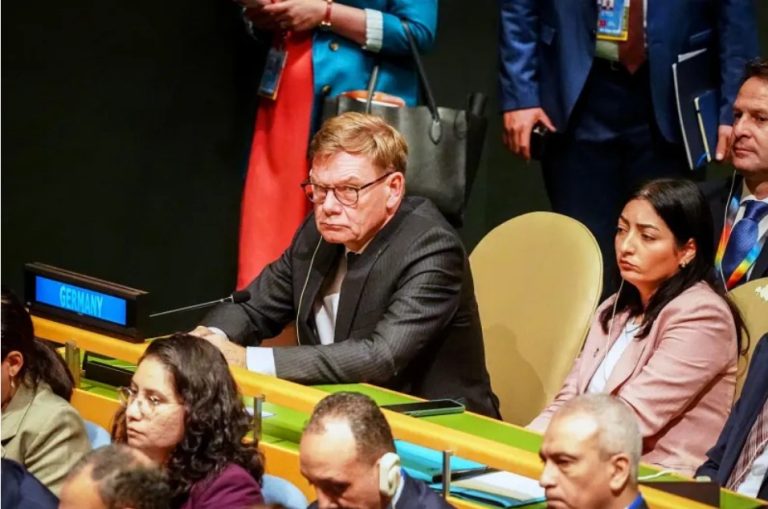Germany, France and the United Kingdom urged Iran on Tuesday to take concrete steps to address longstanding concerns over its nuclear programme, warning that time is running out.
The foreign ministers of the three countries, joined by the European Union, met with their Iranian counterpart Abbas Araghchi on the sidelines of the UN General Assembly in New York.
In a post on X, they said Tehran should act “within the next days, if not hours” including resuming direct talks with the United States and granting the International Atomic Energy Agency (IAEA) access to all Iranian nuclear sites as required under the country’s obligations.
The statement added that the three countries were “prepared to complete the snapback process if necessary,” but stressed that this would not end their diplomatic efforts. “We will remain committed to finding a diplomatic solution to Iran’s nuclear program,” they said.
The meeting included German Foreign Minister Johann Wadephul, French Foreign Minister Jean-Noël Barrot and UK Foreign Secretary Yvette Cooper.
G7 states commend sanction mechanism
Also on Tuesday, the foreign ministers of the Group of Seven (G7) leading industrialized nations called on Iran to comply with its nuclear obligations, resume cooperation with the IAEA, and engage in direct talks with the US to secure a durable nuclear agreement.
“We commended the E3’s decision to trigger the ‘snapback’ mechanism,” the G7 said in a statement.
Germany, France and Britain, known collectively as the E3 states, triggered a “snapback” sanctions mechanism last month, pointing to uranium enrichment far beyond levels needed for civilian purposes.
Earlier on Tuesday, Wadephul accused Tehran of stalling and said he doubted sanctions could be avoided.
“It must be clear to everyone that, after all of Iran’s delaying tactics, the possibilities and chances of reaching a diplomatic solution before the sanctions are triggered are extremely slim,” he said. He added that Iran must demonstrate credible steps showing it has permanently renounced nuclear weapons.
He was referring to the long-running attempts to prevent Iran from enriching uranium, amid fears Tehran is pursuing nuclear weapons.
Iran says its nuclear programme is solely for civilian purposes.
German foreign minister: Iran breaches Vienna nuclear deal
“Iran has been disregarding its obligations under the Vienna nuclear agreement for years,” Wadephul said. “We have drawn the necessary conclusions from this and triggered the so-called snapback mechanism, which will reinstate international sanctions against Iran at the end of this week.”
A deal made in 2015 sought to restrain Iran from developing a nuclear weapon. The Vienna deal was seen as a diplomatic milestone, but the US left it unilaterally during President Donald Trump’s first term.
Nuclear talks resumed with Iran earlier this year but stalled. Last week, the UN Security Council voted against a resolution aimed at ensuring that Iran would continue to be spared sanctions.
That means it is highly likely that the sanctions are to be imposed on Iran on September 28, as they were from 2006 to 2010.
This could hit the Iranian economy, already reeling from US and other sanctions. The country’s energy sector is already hit by sanctions, and Iran is largely excluded from the international payments system.
Observers believe Tehran could retaliate by restricting the work of the IAEA, withdrawing from the Nuclear Non-Proliferation Treaty or even announcing that it will go ahead with building a nuclear weapon.
Before the June war with Israel and the US bombing of Iranian nuclear facilities, the IAEA reported that Iran had more than 400 kilograms of uranium enriched to 60%, far beyond civilian needs. Some 90% is required for a nuclear weapon.



